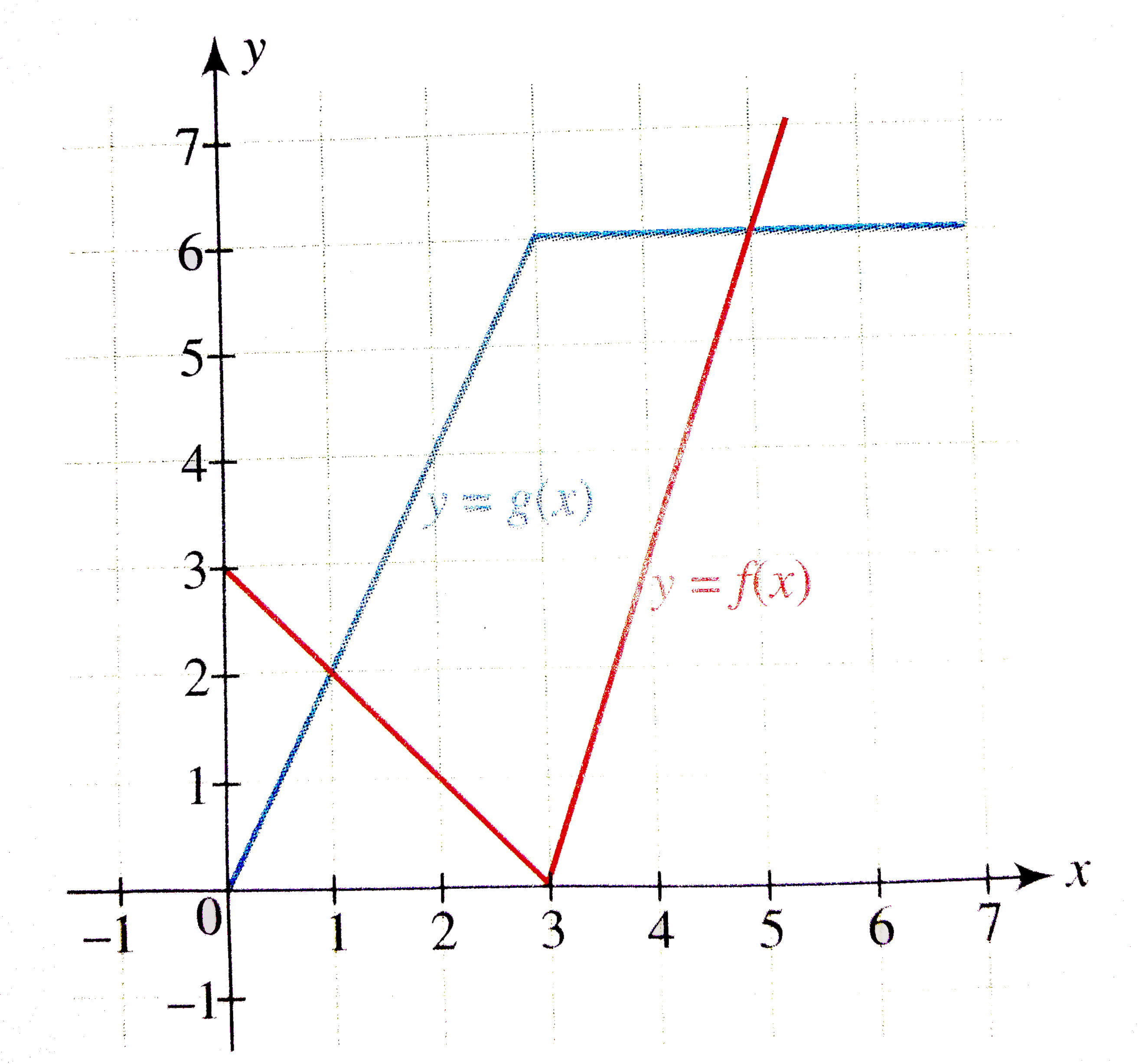g(x+y)=g(x)+g(y)+3xy(x+y)∀x,y∈R and g'(0)=−4.
For which of the following values of x is √g(x) not defined ?
[−2,0]
[2,∞)
[−1,1]
none of these
g(x+y)=g(x)+g(y)+3x2y+3xy2 (1)
or g'(x+y)=g'(x)+6yx+3y2 (differentiating w.r.t. x keeping y as constant)
Put x=0. Then,
or g'(y)=g'(0)+3y2=−4+3y2
or g'(x)=−4+3x2
or g(x)=−4x+x3+c
Now, put x=y=0∈(1). Then g(0)=g(0)+g(0)+0
or g(0)=0
or g(x)=x3−4x
g(x)=0⇒x3−4x=0⇒x=0,2,−2.
Hence. three roots.
√g(x)=√x3−4x is defined if x3−4x≥0
or x∈[−2,0]∪[2,∞).
Also, g'(x)=3x2−4⇒g'(1)=−1.
Topper's Solved these Questions
- DIFFERENTIATIONBOOK - CENGAGECHAPTER - DIFFERENTIATIONEXERCISE - Exercise (Matrix)
5 Videos
- DIFFERENTIATIONBOOK - CENGAGECHAPTER - DIFFERENTIATIONEXERCISE - Exercise (Numerical)
41 Videos
- DIFFERENTIATIONBOOK - CENGAGECHAPTER - DIFFERENTIATIONEXERCISE - Exercise (Multiple)
22 Videos
- DIFFERENTIAL EQUATIONSBOOK - CENGAGECHAPTER - DIFFERENTIAL EQUATIONSEXERCISE - Question Bank
25 Videos
- DOT PRODUCTBOOK - CENGAGECHAPTER - DOT PRODUCTEXERCISE - DPP 2.1
15 Videos
Similar Questions
Knowledge Check
g(x+y)=g(x)+g(y)+3xy(x+y)∀x,y∈R and g'(0)=−4.
The value of g'(1) isA0B1C-1Dnone of theseg(x+y)=g(x)+g(y)+3xy(x+y)∀x,y∈R and g'(0)=−4.
Number of real roots of the equation g(x) = 0 isA2B0C1D3Let y=f(x) such that xy=x+y+1,x∈R−{1}andg(x)=xf(x)
The minimum value of g(x) is:A3−√2B3+√2C3−2√2D3+2√2
Graph of y=f(x)andy=g(x) is given in the following figure. If h(x)=f(g(x)), then find the value of h'(2).

View SolutionA derivable function f:R+→R satisfies the condition f(x)−f(y)≥log(xy)+x−y,∀x,y∈R+. If g denotes the derivative of f, then the value of the sum 100∑n=1g(1n) is
View SolutionIf f(x−y)=f(x).g(y)−f(y).g(x) and g(x−y)=g(x).g(y)+f(x).f(y) for all x∈R . If right handed derivative at x=0 exists for f(x) find the derivative of g(x) at x =0
View SolutionLe f:R→Randg:R→R be functions satisfying f(x+y)=f(x)+f(y)+f(x)f(y)andf(x)=xg(x) for all x,y∈R.Iflimx→0g(x)=1 , then which of the following statements is/are TRUE ?
View SolutionLet f:R→R be a continous and differentiable function such that f(x+y)=f(x).F(y)∀x,y,f(x)≠0andf(0)=1andf'(0)=2.
Let f(xy)=g(x).G(y)∀x,yandg'(1)=2.g(1)≠=0
The number of values of x, where f(x)g(x):
View Solution
